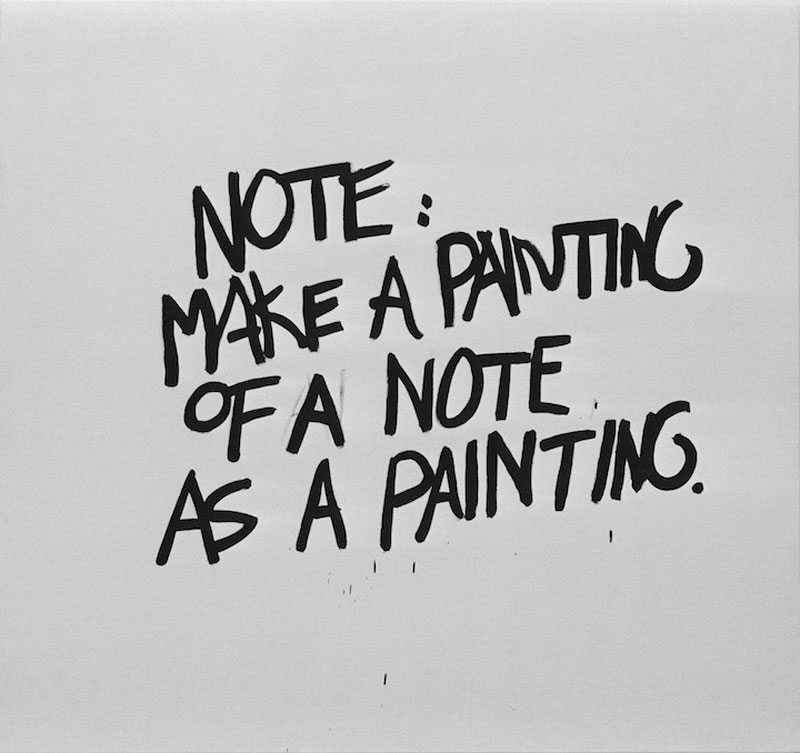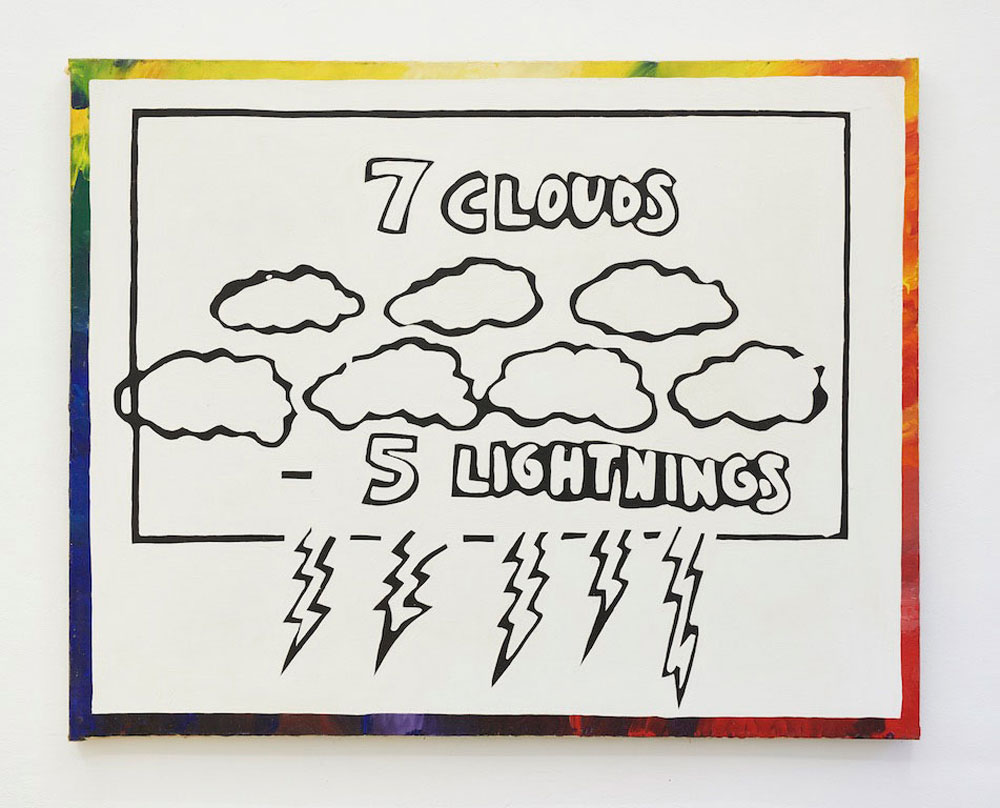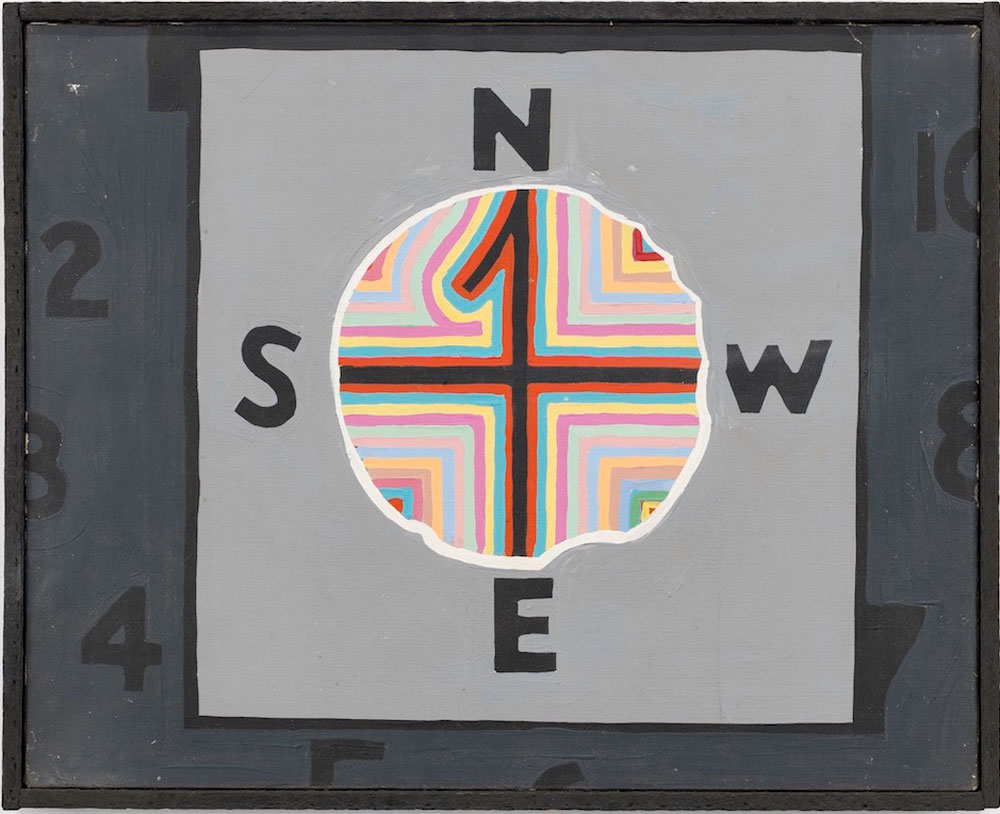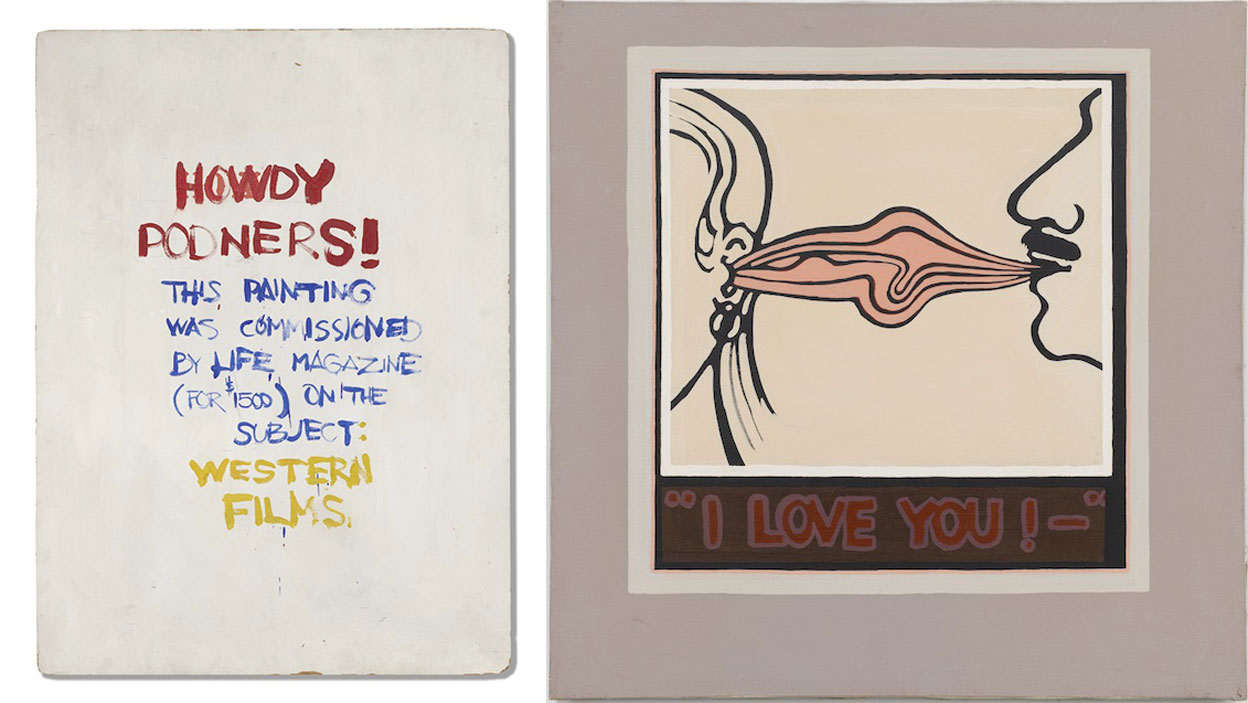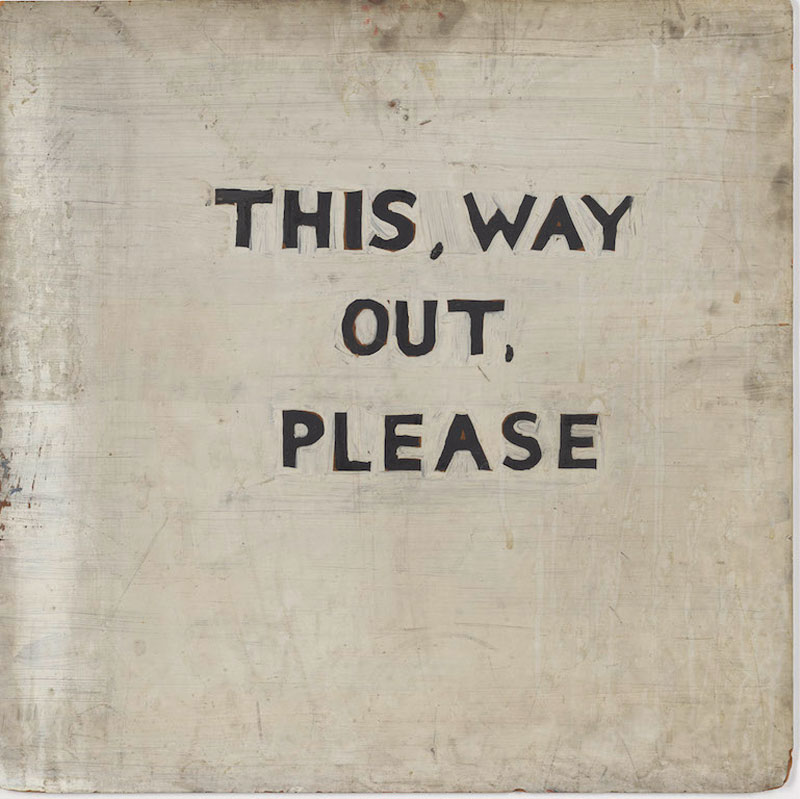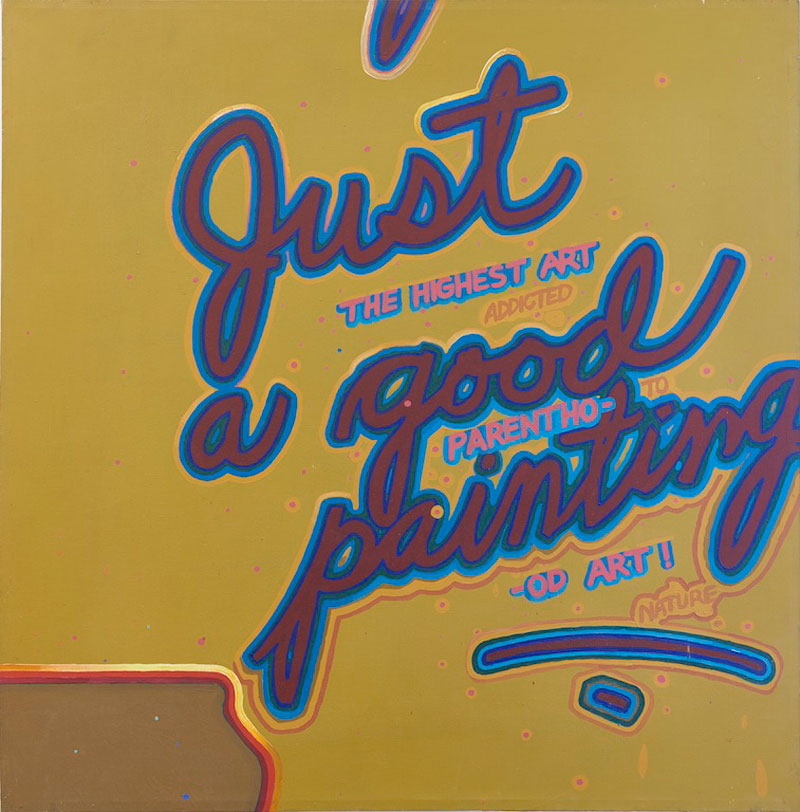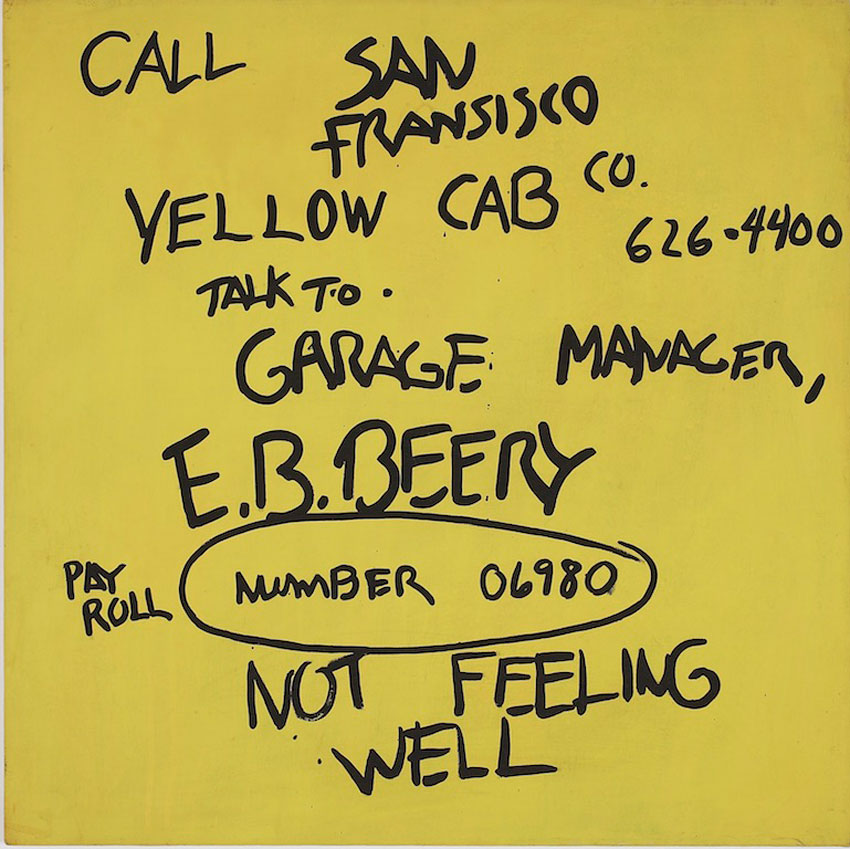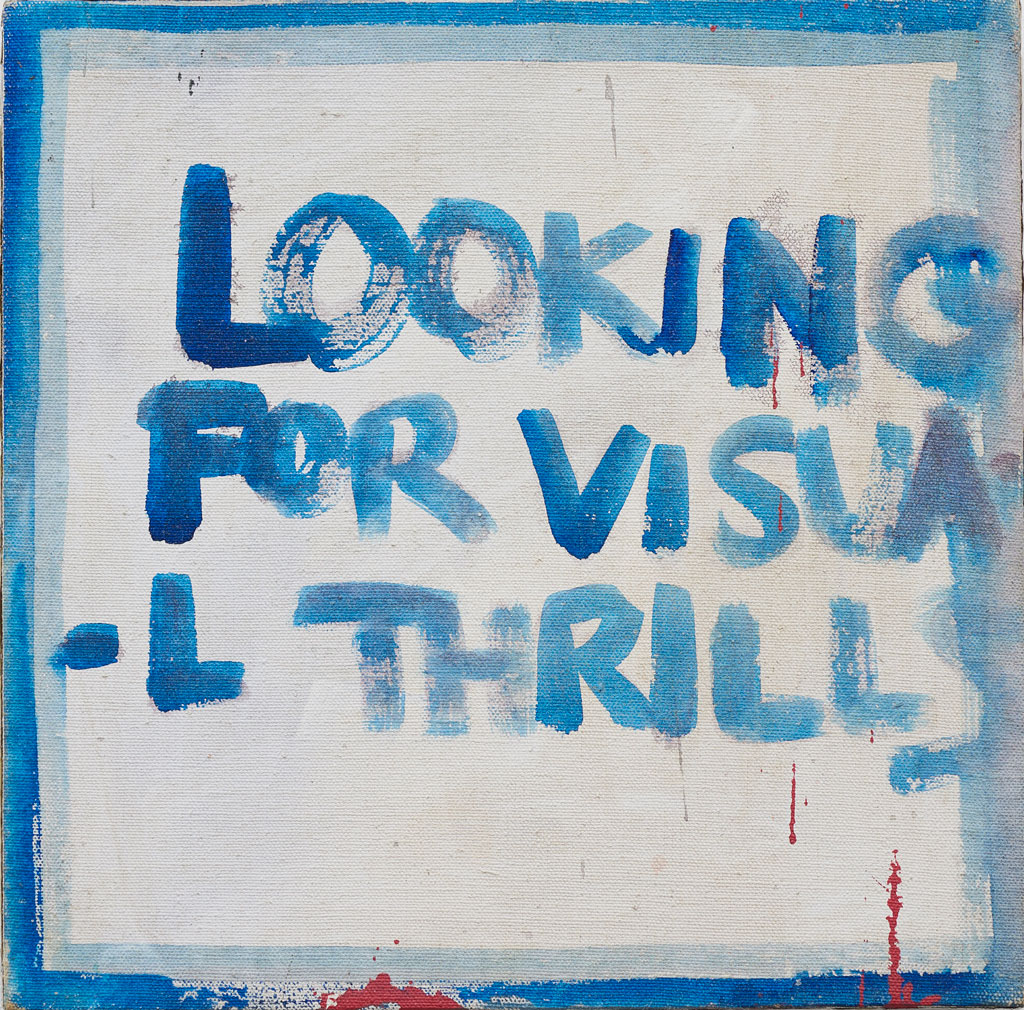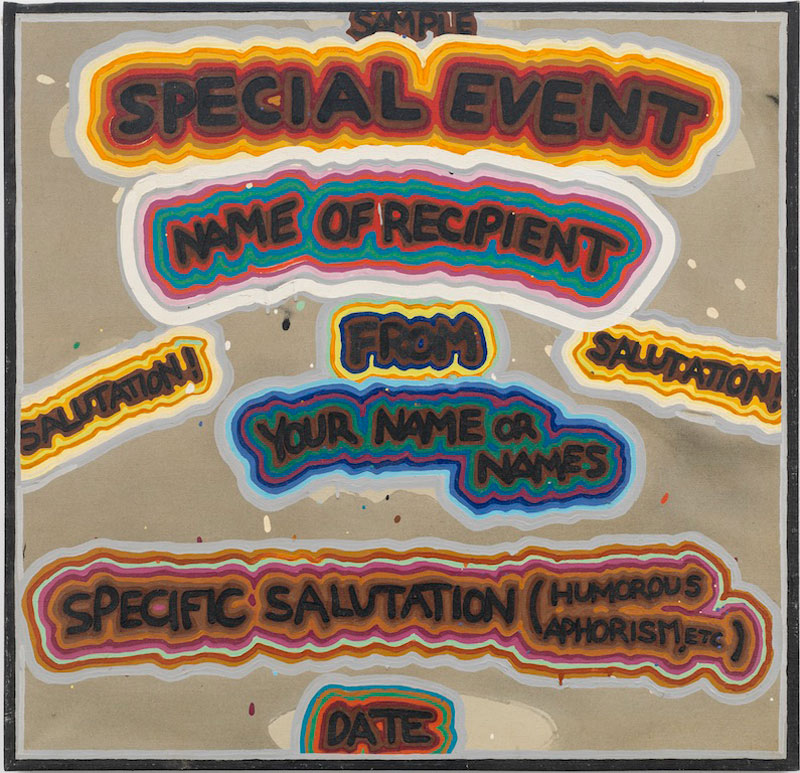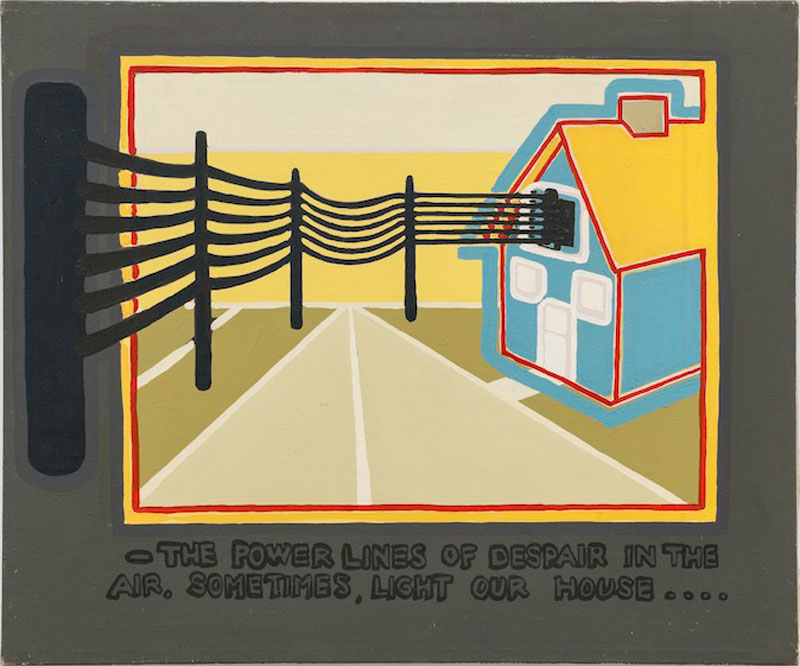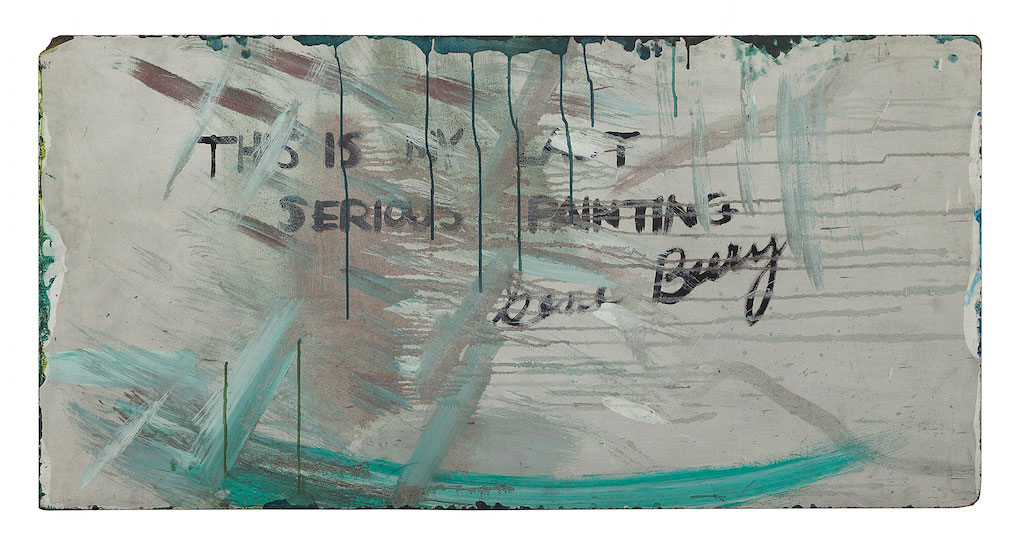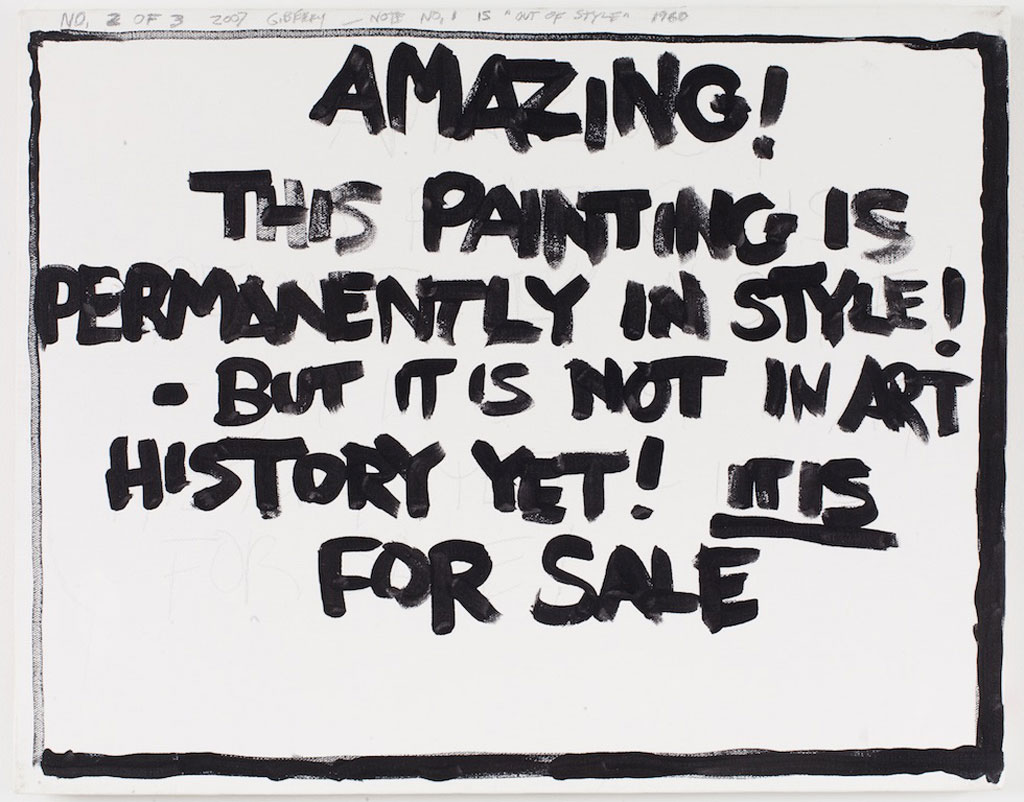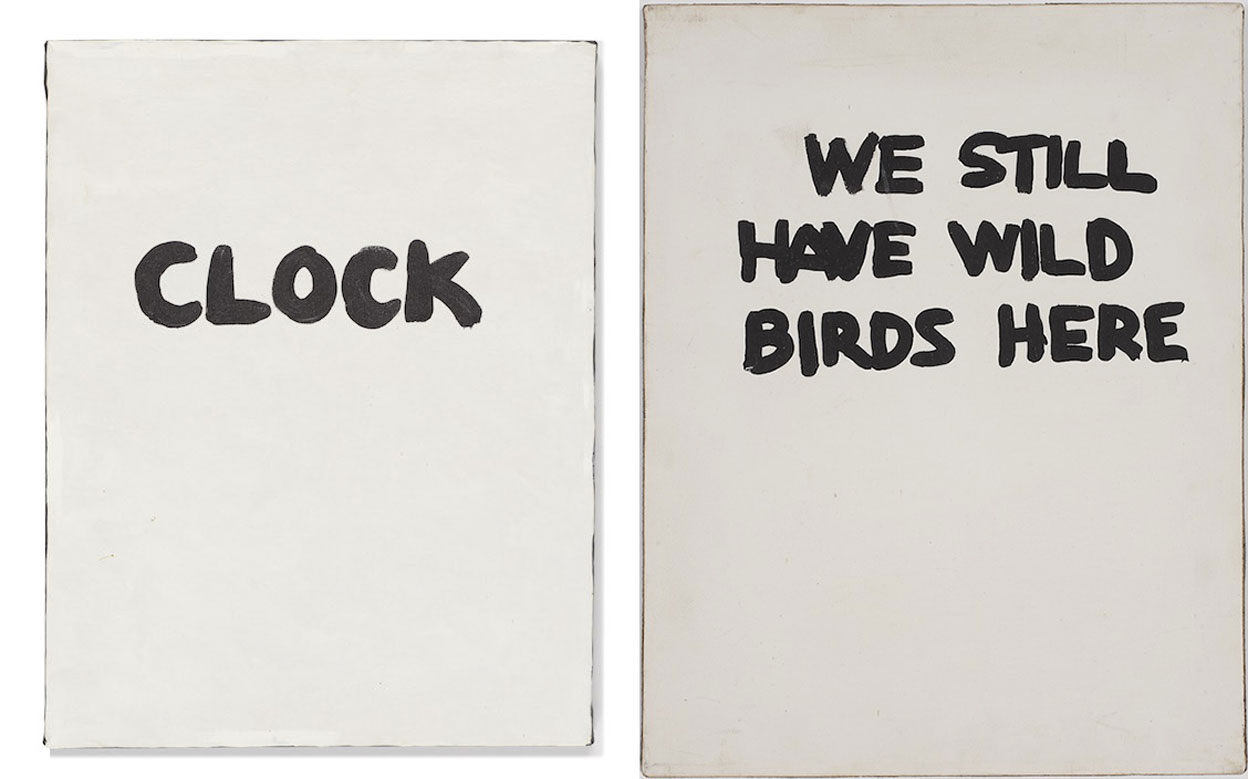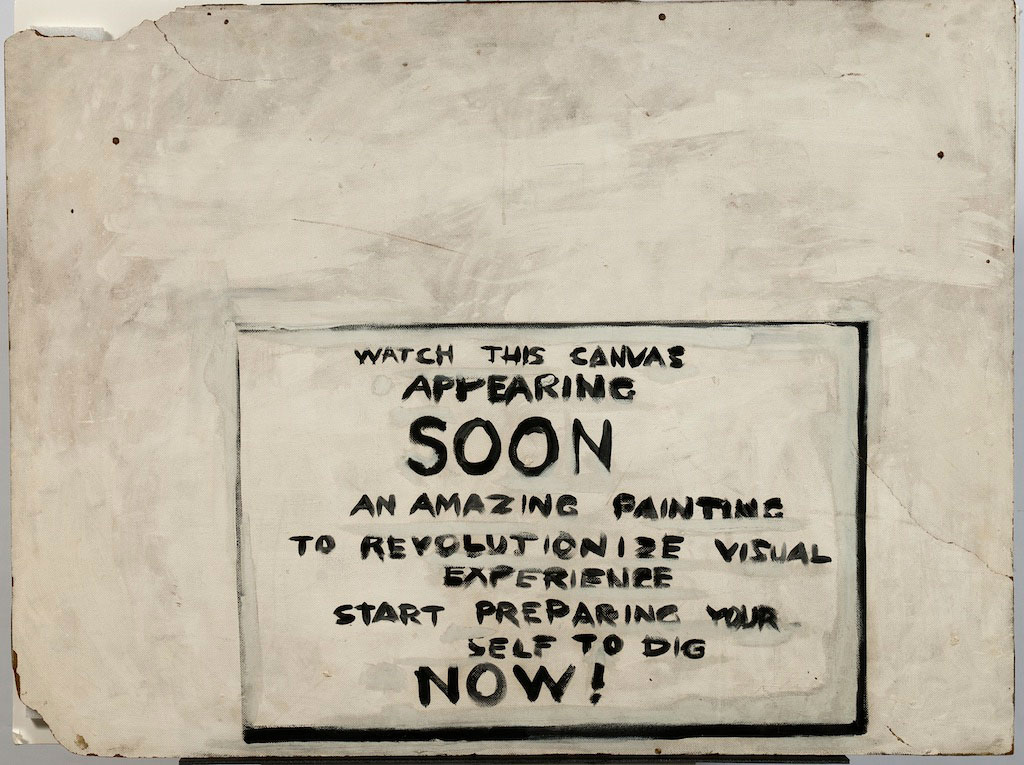ART-PRESENTATION: Gene Beery
 Throughout his career, California-based painter Gene Beery has been described as an expressionist, Pop artist, Minimalist, and Conceptualist. His text-based and earlier figurative canvases tend to show all of these strains of art, like the many walls of a museum, often by placing them in literal conversations with one another.
Throughout his career, California-based painter Gene Beery has been described as an expressionist, Pop artist, Minimalist, and Conceptualist. His text-based and earlier figurative canvases tend to show all of these strains of art, like the many walls of a museum, often by placing them in literal conversations with one another.
By Efi Michalarou
Photo: Fri Art Kunsthalle Fribourg Archive
Featuring 40 works spanning over 50 years, a retrospective of Gene Beery is on presentation at Fri Art Kunsthalle Fribourg, the majority of the works are on loan from the Personal Collection of Sol LeWitt, the LeWitt Collection, USA. Despite his art historical significance and his contribution to reconsiderations of the picture plane, Beery remains largely unknown. The retrospective allow the fluctuating periods of Beery’s oeuvre to be in dialogue, for the first time in the same space. The works on view range from early anti-art paintings (1960-63), figurative works (1965-75), the artist-book series (1976-85) and the burgeoning contemporary period (1986-2016). Beery is one of the first artists to use words and texts to form visual artworks, which he coined the “Paintogram”, the term he coined to define his painted texts works. At the start of his career, in the late 1950s, Beery worked at the MoMA like many other artists of his generation. “I guarded my own painting at MoMA in the early 1960s. I wasn’t the only artist working as a guard there. Dan Flavin was too; so was Bobby Ryman. Lucy Lippard had a job in the print department and Sol LeWitt was a night clerk in the museum’s offices. I remember an elevator would get stuck there every so often. At night, when people would hear the loudspeaker say that the museum was closing, Sol and I would bullshit around or he would sometimes suggest interesting authors to read, like Henri Barbusse. Sol was really literate like that, erudite. So I started to read some of them”. After a 1963 show at Alexander Iolas Gallery in New York, Beery moved to the Sierra Nevada mountains, where he still lives. Beery’s work is sharp, deceptively simple and layered with humor. He peppers it with made-up words and exaggerated references to popular culture. The artist’s text paintings from the 1960s and ’70s often involve whole messages, or common word and number constructs—calendars, lists and alphabets are his favorites. “Not feeling well” (1968) is a painted copy of a note Beery wrote to an employer. “Quixotic” (1975) depicts a calendar page of the romantic month “Quixotic” on a background of rough stripes of grassy spring colors. Over the years Sol LeWitt remained Beery’s greatest champion; rescuing works from his abandoned New York studio and making these a foundational part of the Sol and Carol LeWitt Collection, as well as underwriting the publication of Beery’s many artist’s books. While other artists using text and numbers who emerged in the 1960s (Lawrence Weiner, Joseph Kosuth, On Kawara) produced mostly cerebral works lacking evidence of the artist’s hand, Beery seemingly poked fun at the high Conceptualism of the day. He continued to make his uniquely homespun and humorously irreverent canvases, the rawness of their execution a throwback to the Abstract Expressionists. In the early 1990s, Beery painted “We still have wild birds here” reflecting his concerns about global warming and the preservation of our natural habitat. Unclassifiable, the text-paintings are at the intersection of Fluxus, Minimalism, Neo-Dada and assemblage.
Info: Curator: Balthazar Lovay, Fri Art Kunsthalle Fribourg, Petites-Rames 22, Fribourg, Duration: 4/5-30/6/19, Days & Hours: Wed-Fri 12:00-18:00, Sat-Sun 13:00-18:00, www.fri-art.ch
